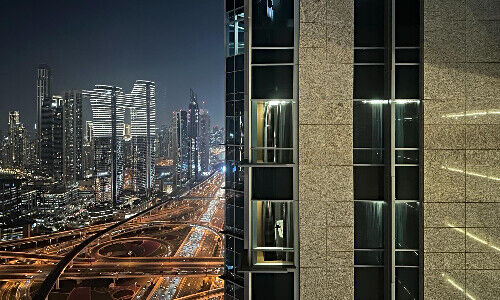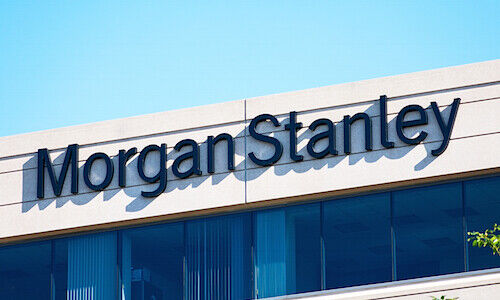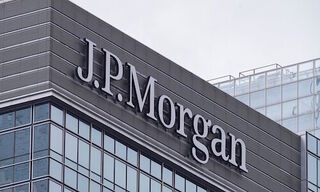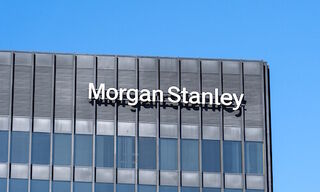For years, Swiss wealth managers could stand by and watch as overseas clients turned up at their doorsteps bearing assets. Those times are over as the epicenter of wealth shifts to the Middle East. Rarely have risk and opportunity been so intertwined.
In recent years, the unique, almost magnetic attraction of the international financial hub of Dubai has prompted the moneyed classes of the world to flock there in droves – despite the very significant cultural differences to that in the West. The United Arab Emirates (UAE) has become a melting pot of famous stars, influencers, and digital nomads as well as visionary entrepreneurs, investors, and asset managers.
Not only does that create immense value, it results in a massive capital overhang just waiting to be managed. It is also a paradigm change in the pecking order of the global financial centers of the world. In the past, Swiss wealth managers could simply wait for assets from the superwealthy to turn up from anywhere and everywhere. Now, that money is going to Dubai and neighboring Abu Dhabi, in many cases outwardly manifesting itself in the mundane properties that spring up like so many mushrooms in the desert.
Developing a Taste
The futuristic Dubai International Financial Centre (DIFC) exemplifies some of the Emirate's key advantages. Optimal business conditions, low taxes, and an easy entry and exit regime (speak: Golden Visa) as well as many other incentives to get companies to move there. Last but not least, the politically neutral stance of the government has helped to increase the appetites of an increasing number of Swiss banks and wealth managers to base operations there.
Geneva's Lombard Odier, which currently employs 20 in the UAE, intends to double numbers over the next three years. UBS, after integrating Credit Suisse, will have about 200 staff working in Dubai. Related to that, several former Credit Suisse employees have also decided to join the ranks of Deutsche Bank, including a ten-strong steam under Saad Osseiran, a highly praised client advisor, something that finews.ch (German only) previously reported on.
Singapore Competition
At the outset of 2024, UBP reshuffled its regional leadership under Mohamed Shoukry and it already employs 40 locally to reflect strong growth in the Middle East and the significant inflows of ultra-high net worth, institutional clients, and family offices, as finews.com previously reported. Even Vontobel, which has no direct presence there, has been building up advisory teams in Geneva and Zurich to help them participate in the region's growth, as Middle Heast head Gianpiero Galasso recently told finews.com.
Moreover, it is increasingly looking like Dubai is overtaking Singapore. The number of wealthy individuals fell internationally last year, although the Middle East was the only region to see them rise, as the wealth report by Capgemini, a consultancy, shows. The UAE had the highest net influx of millionaires according to estimates by Henley & Partners, with the global residence and citizenship by investment consultancy indicating that they numbered 4,500 last year alone.
Bubble Economy
The quick growth in recent years also presents risks. The danger of a market bubble is present in many different economic sectors but it is the largest in retail estate. No one knows if there is demand for the large number of mundane projects currently on offer. The question of reputation is also a key, and something that international banks have to face, at least if they continue to propagate Western values such as equality, sustainability, and diversity.
The understanding of those values in the Middle East is not the same as it is in Europe. At the same time, the region's leaders are also aware that they can only fulfill their global ambitions if they at least align their values to the Kodex of the free world.
Messi As Ambassador
That is already happening to a certain extent. At the behest of its rulers, the UAE is working towards a society that allows for different value systems. There is a certain unavoidable irony in that happening now, particularly as populism becomes increasingly popular in the US and Europe at the same moment that freedom meets the front end of a football (soccer) boot (see video below).
Even neighboring Saudi Arabia, where most of the regional money is, does not shy away from spending what is necessary to give itself a good measure of Western diversity and tolerance as part of a Marshall Plan aimed at making it an oasis of prosperity and progress by 2040. The best example of that is the advertising spot with Argentine football star Lionel Messi playing an important part in breaking down international stereotypes of the region.
Russian License Withdrawal
But there is something else that Swiss banks will have to face up to in the UAE. At the outset of the Ukraine war, wealthy Russians were highly welcomed as clients in both Dubai and Abu Dhabi. At times, they were even the largest buyers of property although that appears to have come to a halt in the meantime. Many of them don't have the same means now given the massive depreciation of the ruble. The US, however, has also exerted stiff political pressure, which is something even the Emirs can't avoid.
The best example of that would be Russia's MTS Bank, a subsidiary of the country's largest mobile telecommunications company. When times were good, it had a UAE banking license. But when the US expanded sanctions against Russia after the war started, MTS was part of the comprehensive regime of measures that were introduced. As a result, the UAE had to annul its banking license.



























